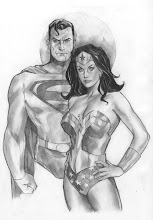
The first golden coins in history were coined by Lydian king Croesus, around 560 BC. The first Greek coins were made initially of copper, then of iron because copper and iron were powerful materials used to make weapons. Pheidon king of Argos, around 700 BC, changed the coins from iron to a rather useless and ornamental metal, silver, and, according to Aristotle, dedicated some of the remaining iron coins (which were actually iron sticks) to the temple of Hera.King Pheidon coined the silver coins at Aegina, at the temple of the goddess of wisdom and war Athena the Aphaia (the vanisher), and engraved the coins with a Chelone, which is to this day as a symbol of capitalism. Chelone coins were the first medium of exchange that was not backed by a real value good. They were widely accepted and used as the international medium of exchange until the days of Peloponnesian War, when the Athenian Drachma replace them. According other fables, inventors of money were Demodike (or Hermodike) of Kymi (the wife of Midas), Lykos (son of Pandion II and ancestor of the Lycians) and Erichthonius, the Lydians or the Naxians.
The history of money is a story spanning thousands of years. Related to this, Numismatics is the scientific study of money and its history in all its varied forms.Money itself must be a scarce good. Many items have been used as money, from naturally scarce precious metals and conch shells through cigarettes to entirely artificial money such as banknotes. Modern money (and most ancient money too) is essentially a token — in other words, an abstraction. Paper currency is perhaps the most common type of physical money today. However, goods such as gold or silver retain many of money's essential properties.
The history of money is a story spanning thousands of years. Related to this, Numismatics is the scientific study of money and its history in all its varied forms.Money itself must be a scarce good. Many items have been used as money, from naturally scarce precious metals and conch shells through cigarettes to entirely artificial money such as banknotes. Modern money (and most ancient money too) is essentially a token — in other words, an abstraction. Paper currency is perhaps the most common type of physical money today. However, goods such as gold or silver retain many of money's essential properties.

1 comment:
SilverGoldBull is your reputable silver & gold dealer. They will provide you with competitive, real-time rates and they will make sure your precious metals arrives to your door discreetly and fully insured.
Post a Comment